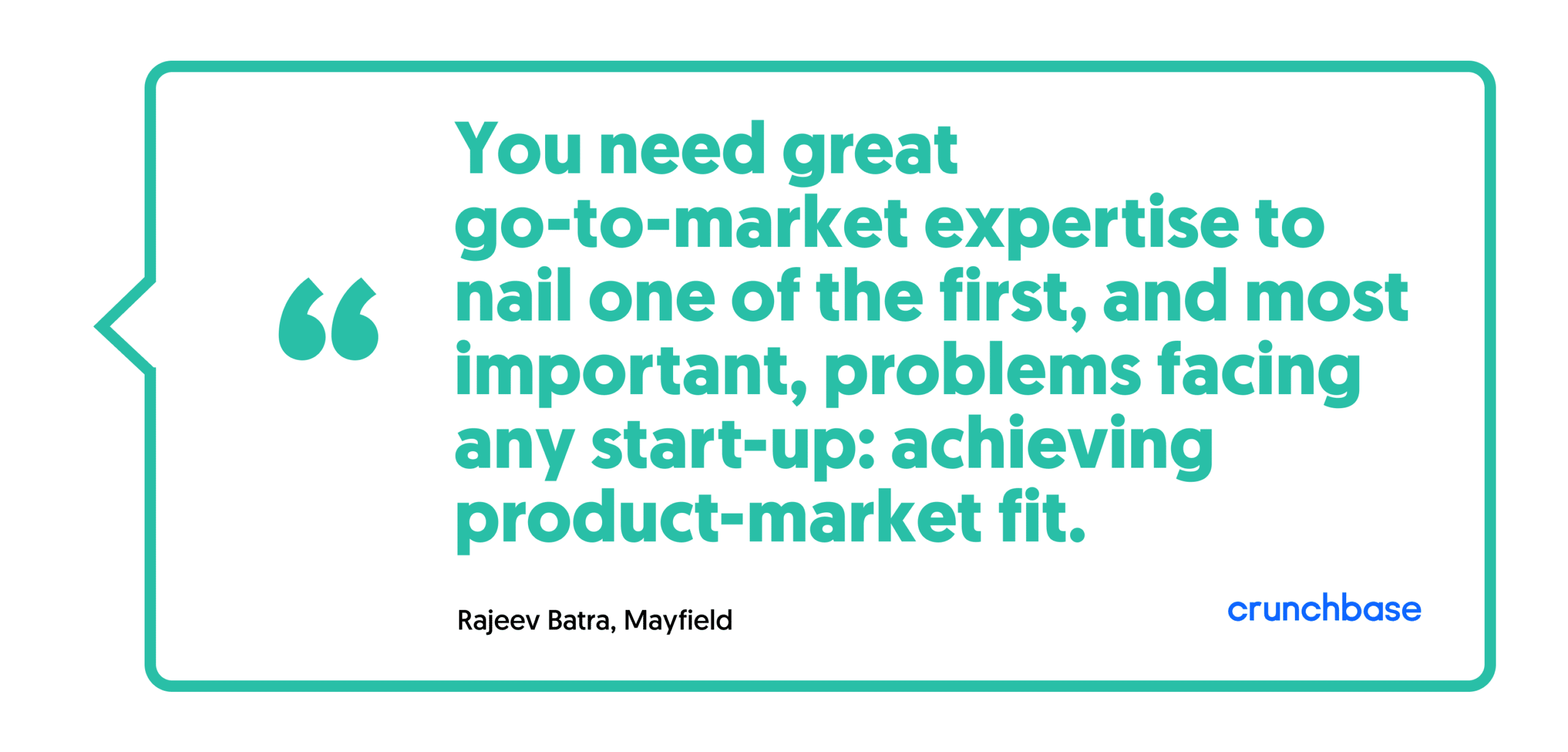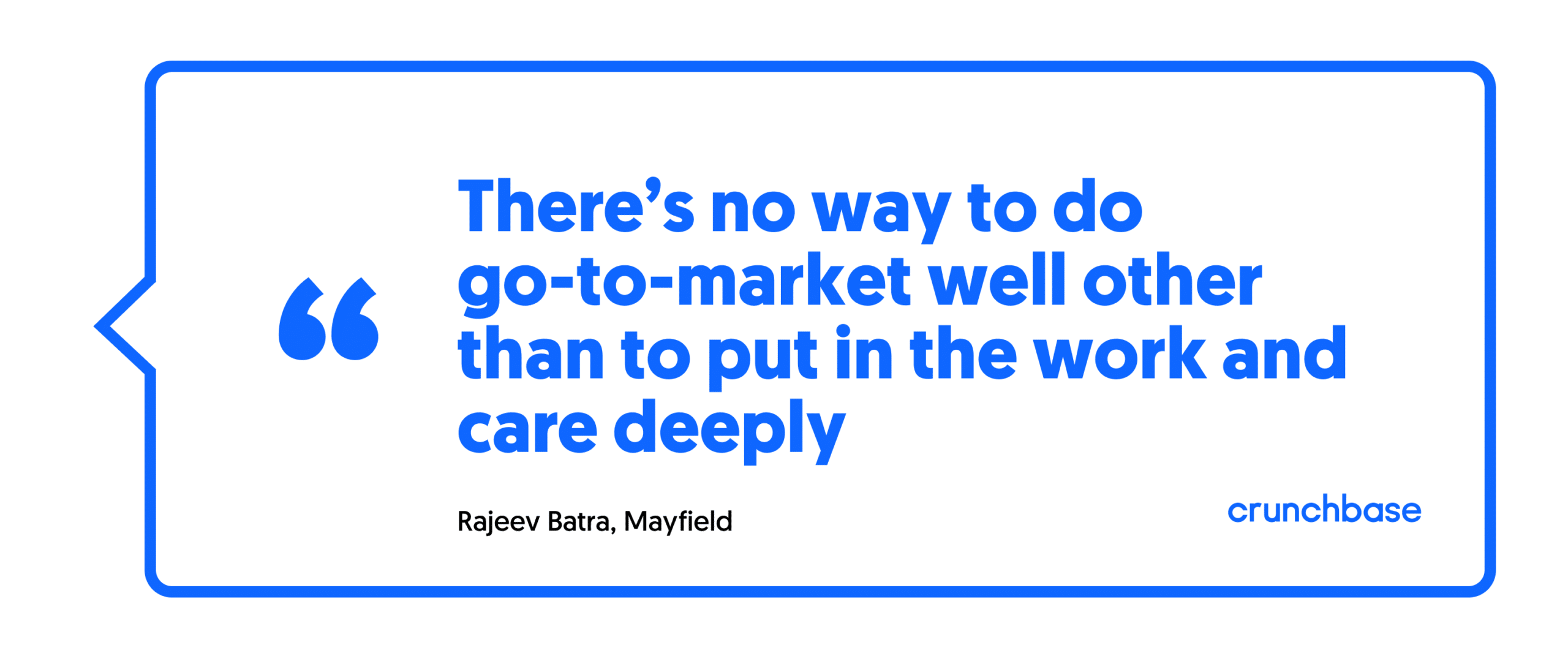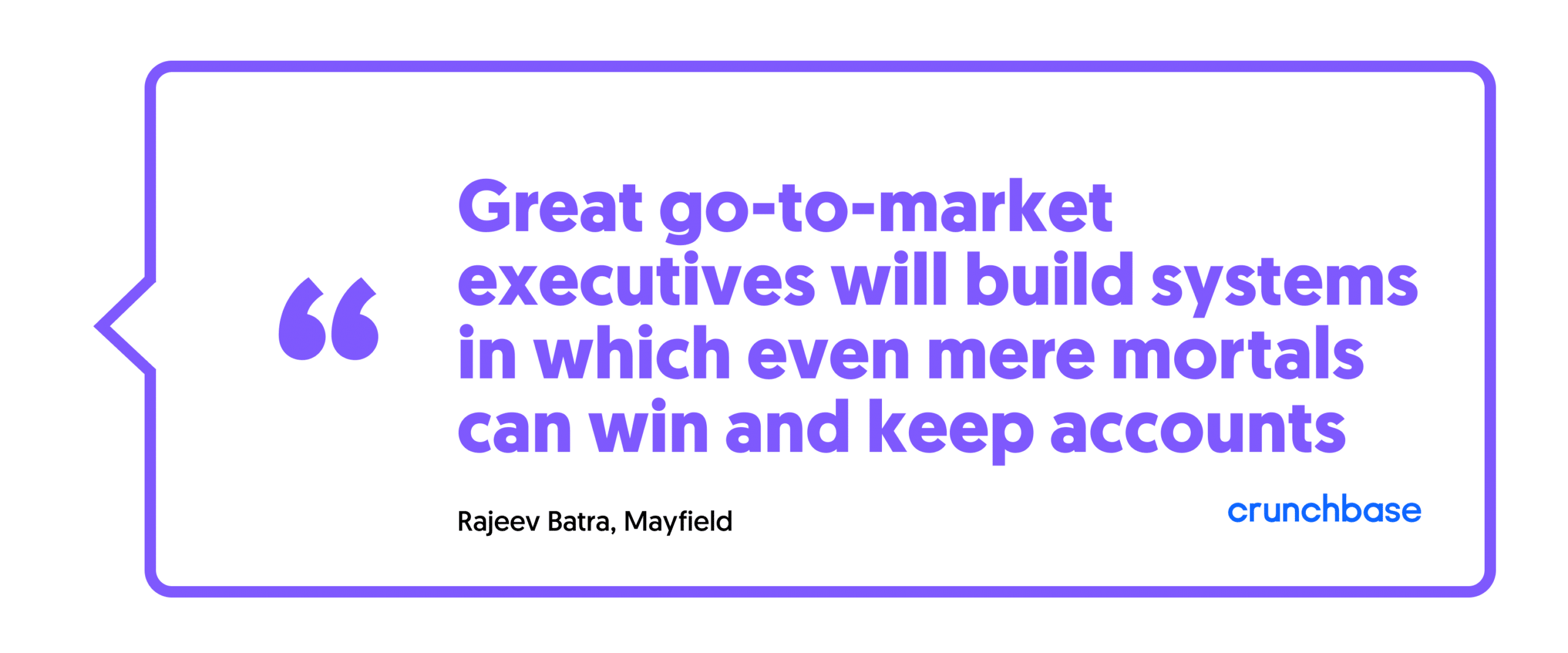As an entrepreneur and operator-turned-investor, I’ve worked at a few great companies, been fortunate to partner with many talented founders, and observed many trends and patterns in the industry. I am a self-professed B2B software industry nerd and a student of the game.
In a breakout startup, besides getting the market and timing right, you need a few types to round out a great team: you need a founder with the charisma and determination to build a strong culture and to will a company into existence; a rock-star engineer or three to create breakthrough technology, and a product visionary to apply that technology in a novel way to solve a big & important problem. But often, companies discount the need for great go-to-market leaders in sales, marketing, and customer success, to turn that potential into reality.
I believe one of the reasons for this gap is that founders tend to think of go-to-market expertise as a necessary evil that they could probably execute on their own if they had the time or the interest. In my experience, strong founders tend to over-index on their own expertise. They clearly see the value of things they’re good at but underestimate the importance of skills they know less about.
This is generally true of most people, however in highly capable individuals such as startup founders, this can be taken to the extreme. So if they’re not passionate about sales, marketing, or customer success, they think the talent to lead this is something you can recruit without much trouble. This is dangerous thinking.
Often, you need great go-to-market expertise to nail one of the first, and most important, problems facing any start-up: achieving product-market fit.
Many founders suffer from what I call “genius syndrome.” While it’s obvious to them how their product could be used to the greatest effect, customers don’t have the time or interest in figuring it out. So they don’t buy. Or maybe they do and don’t get immediate value. That’s even worse.
Hence, go-to-market expertise at the earliest stage of the company is not about scaling revenue, it’s about solving whether there is a market for your product.
If you provide value from the start, most customers will stick around as you build out your larger vision. If there’s no early benefit, you’ve probably lost that customer forever. And as a company scales, go-to-market functions become even more critical – how to scale beyond founder-led sales, how to establish repeatable processes for customer acquisition, how to efficiently ensure customer success, and the list goes on. One of the triumvirate of leaders I respect – former Marketo executives Sanjay Dholakia, Bill Binch, and Jason Holmes – call this the *See More, Win More, Keep More* formula.
As a venture capitalist, I’ve met many such leaders who have and are making a huge impact at our portfolio companies such as Marketo, ServiceMax, Moat, Outreach and others, but also many whom I count as advisors (and friends) outside the Mayfield family. I have found that they are great people to know–passionate, intellectually curious and emotionally intuitive.
The hallmarks of a go-to-market superstar
So what are the hallmarks of a go-to-market superstar? Here are some attributes I look for:
They know there’s no such thing as “the easy way.”
Brilliance can solve a lot of problems for a company. You see this a lot on the technology front and even on the business-model side. Mastering go-to-market, on the other hand, almost always requires plain old hard work and a lot of empathy. There’s no way to really understand customers’ pain points other than to spend a lot of time with them and care about them and their needs.

There’s no way to nail pricing without a deep understanding of the value of your product, alternatives, and the competition. Simply put, there are no shortcuts. There’s no way to do go-to-market well other than to put in the work and care deeply.
And that there’s no such thing as the perfect product.
Every product can and does benefit from a strong go-to-market. Even the iPhone, arguably the most intuitive technology product in the world, is supported by a massive go-to-market infrastructure of partnerships, temple-like stores and tens of thousands of “geniuses.”
They have bi-directional empathy.
The only way to truly understand what customers want to buy is by empathizing with what it’s like to be in their shoes, great go-to-market executives have empathy not only for their customers but also for the founders they partner with. They understand just how deeply the founder believes in his or her long-term vision, and see their job not only as making the company thrive today but also to position it to achieve those long-term goals.
They’re pragmatic.
Many start-ups make the mistake of building their sales program based on the founders’ ability to sell the product. Early on, it’s almost always the right answer, because no one else is likely to have the knowledge, passion, and determination to land early deals. Simply put, the founders are the company’s best salesperson. But you can’t replicate and scale those qualities in other sales-people. Instead, great go-to-market executives will build systems in which even mere mortals can win and keep accounts.

And humble.
No one should cry a tear for great go-to-market people. Once they’ve earned their reputation, they are well-compensated and are highly sought after for great jobs and as board members and advisors. But they don’t get nearly enough public accolades for their accomplishments. CMOs, CROs, and CSOs are rarely asked to keynote high-profile conferences or sit on panels not directly focused on their domain, and reporters tend to dismiss their value for many of the same reasons founders do: the faulty assumption that they are a dime a dozen.
They are great storytellers.
One of the hallmarks of great go-to-market leaders is that they draw on their empathy to tell great stories – cultural narratives to build great teams, explain to the world why their product matters, and help create a lasting brand.
In this series, we will highlight ten breakout go-to-market leaders who will share their stories directly. The series will feature non-obvious insights on key topics such as category creation, product-market fit, the role of culture in elevating brand, and scaling community-oriented marketing. Stay tuned!
Originally posted on Crunchbase.

